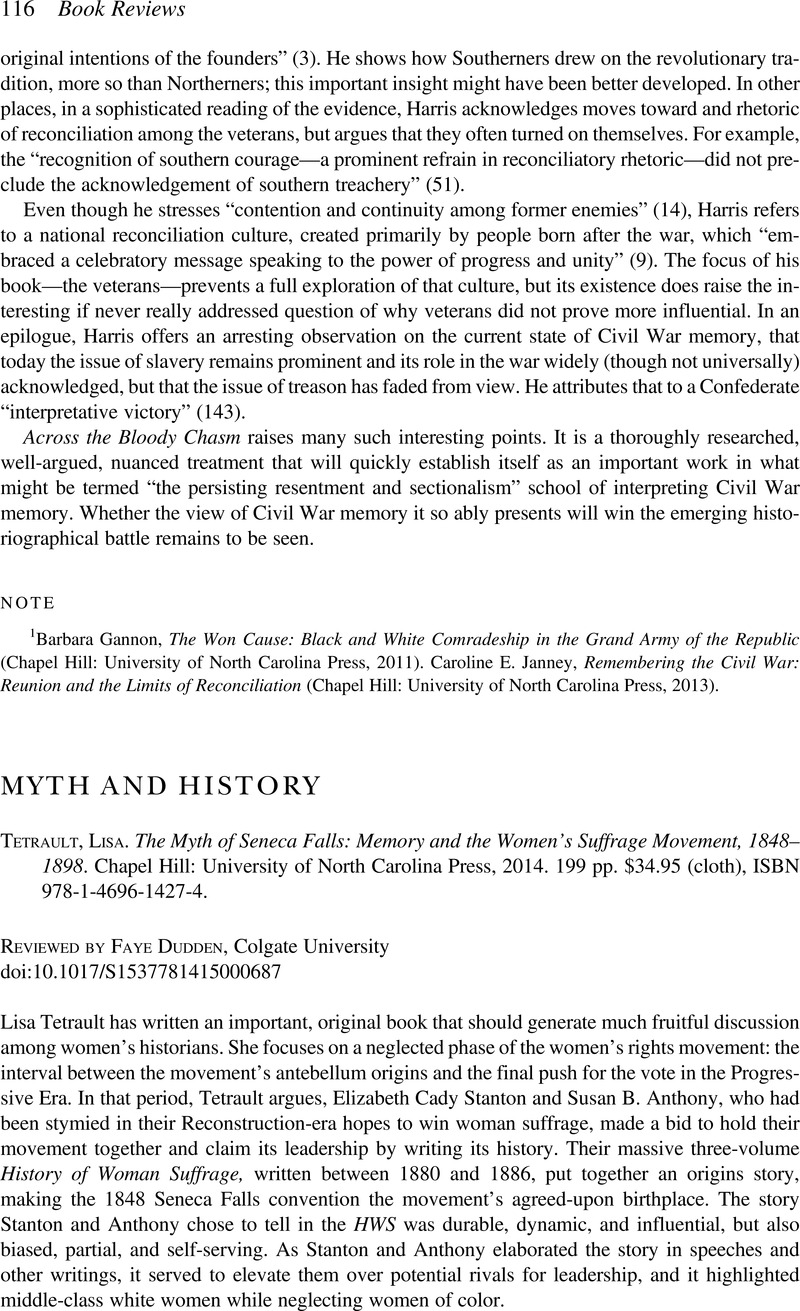No CrossRef data available.
Published online by Cambridge University Press: 04 February 2016

1 David Blight, Race and Reunion: The Civil War in American Memory (Cambridge: Harvard University Press, 2001).
2 See an explicit statement from Stanton disavowing educated suffrage: Elizabeth Cady Stanton, “The Ballot,” Revolution, March 26, 1868, pp. 184–85. Or see “What the Press Says of Us,” Revolution, May 28, 1868, p. 322, indicating that Stanton opposed educated suffrage while her coeditor, Parker Pillsbury, favored it.
3 John F. McClymer, This High and Holy Moment: The First National Woman's Rights Convention, Worcester, 1850 (New York: Harcourt Brace, 1999).
4 Gary W. Gallagher and Alan T. Nolan, eds., The Myth of the Lost Cause and Civil War History (Bloomington: Indiana University Press, 2000).